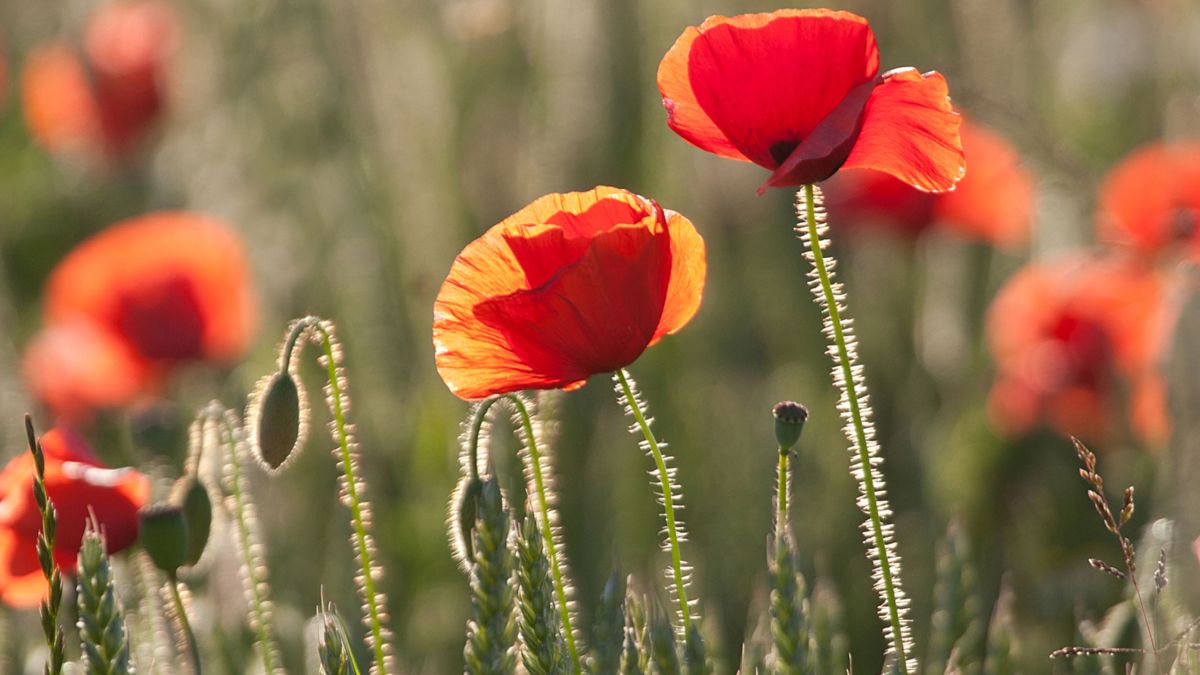Former Army servicewoman, Jean Macdonald, from Shropshire, UK, finally feels she belongs to a military family 40 years after being forced to leave the Army due to her sexuality – when it was illegal to be gay in the Armed Forces.
Jean has recently won a competition to have her stunning photography featured in the charity Help for Heroe (opens in new tab) s’ new 2023 calendar. Jean is one of six amateur photographers from the Armed Forces community to have her talents showcased in the calendar, which celebrates the outdoors and is on sale now (opens in new tab) .
There are many reasons why taking photos improves your mental health, and below, Jean shares the profound impact photography has and has had, on her mental health journey.
Jean Macdonald is an award-winning nature and landscape photographer, having featured in multiple photography publications and exhibited throughout Shropshire, with the proceeds going to charity. She is the co-author the book ‘Secret Shropshire’, was Highly Commended in Garden Photographer of the Year 2009, in the ‘Trees’ category and was highly commended in the British Wildlife Photography Awards, 2013.
When I was nine years old, I borrowed my mum’s Kodak box camera for a school trip to the zoo. I remember staring through the viewfinder, captivated by a lion that had starred in the film ‘Born Free’. That was the moment I discovered my love for photography, I was hooked!
At age 19, I joined the Army as a physical training instructor and my ambition was to join the Operations and Intelligence Corps as I knew this would allow me to combine my two passions, my military career and my love of photography. Sadly, I never realized this dream because by age 24, despite exemplary service, I was discharged from the career I loved, just for being gay.
My military discharge was traumatic, and it had a profound effect on my life resulting in years of mental health difficulties, shame, and low self-esteem. I was later diagnosed with complex PTSD.
One of the biggest symptoms of PTSD is the horrors of the past intruding into your everyday life, and for me, that often means dissociating and not being connected with my sense of self. Photography enables me to connect with the landscape and nature, it is the ultimate form of mindfulness. I am in the moment. It’s about the process of creating the image.
Nature has no bias, it does not discriminate and as a result, any injustices that have hurt me, disappear when I am behind my lens. When I focus through the viewfinder, the world becomes a smaller, less scary place. I can cross boundaries, and break conventions, with the freedom to express and be my authentic self.
(Image credit: Jean Macdonald)
(opens in new tab)
My mental health journey has mirrored my photography journey, with many of my pinnacle moments involving my camera. My returning passion for photography has always been a sign that the darkness is lifting. In difficult times I have climbed mountains, camped in the wild and connected with my surroundings. In those moments of focusing on the light and nature before me, I have never felt more alive.
About Help for Heroes
(Image credit: Help For Heroes)
Help for Heroes is the leading Armed Forces and veterans’ charity in the UK, set up to help people live well after service. As well as running sporting and social activities across the UK, the charity also organizes photography workshops, and online courses, as well as producing a charity calendar each year.
Visit Help For Heroes for more
I’ve been fortunate to win competitions that have resulted in commissions, and I’ve held exhibitions with the proceeds going to charity, giving me a sense of purpose. I’m able to give back by selling greeting cards to help fund a women’s mental health group that I attend. I was thrilled to have five photographs selected for the ‘Help for Heroes’ calendar competition. It has taken me a long time to reconnect with the Armed Forces and call myself a ‘veteran’.
When I contacted Help for Heroes, I felt accepted. I’ve taken part in several activities through the charity, which aims to improve the lives of veterans and I am looking forward to attending more of their photography courses.
(Image credit: Jean Macdonald)
(opens in new tab)
(Image credit: Jean Macdonald)
(opens in new tab)
Photography can be a place to reflect your own values, thoughts, and desires, and to manifest the kind of world you want to see. In short, you can choose what you focus on and what you leave out of the frame.
Immersing yourself in creative pursuit is also a scientifically-proven way to lower your stress hormone levels, which in turn lowers feelings of anxiety, improves sleep, elevates your mood, and reduces your overall likelihood of developing certain diseases down the line.
Mindfulness and photography go hand in hand. To get good landscape pictures, you have to be totally present in the moment and in the location that you’re working in. By default, you’re being mindful, even if you’re not aware of it.
Mindfulness is actually just shooting your photos purely for you. It’s about not worrying about whether people will like it, whether they won’t like it, even if the image works. It’s about the process.
My favorite quote from photographer Alfred Eisenstaedt sums it up: “When I have a camera in my hand, I know no fear.” It sounds like a cliché to say ‘photography saved my life’ but in a world full of so much judgment, it has given me the freedom to express the beauty and the diversity of the world as I see it.
Read more:
Photography is good for your mental health in more ways than one (opens in new tab) (opens in new tab)
